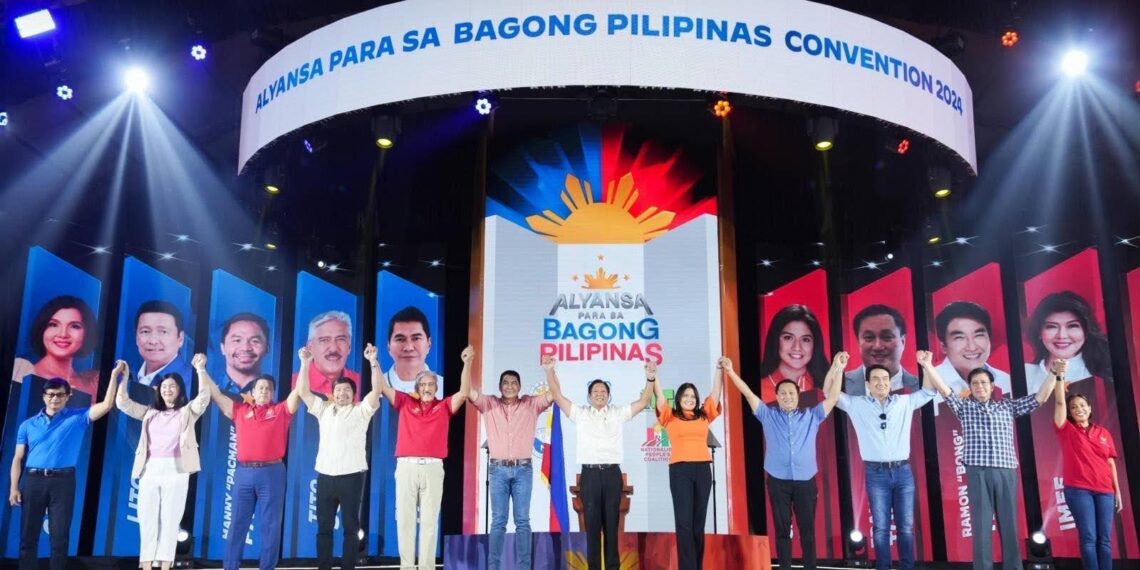The political season has fired off in the Philippines as aspirants for Congress and in the local governments begin to file their candidacies seven months ahead of the 2025 mid-term elections.
Often dubbed as a circus since candidates resort to all forms of gimmickry to attract voters’ attention — including dancing and singing before crowds — the May 12 polling is widely considered as a referendum on President Ferdinand Marcos, Jr.’s performance midway into his 6-year term.
The aspirants may file their certificates of candidacies October 1 to 8 although substitution is allowed when any candidate suffers from death, incapacitated or disqualified by the Commission on Elections (Comelec) before the actual election.
More than 18,000 positions are at stake — 12 for Senate; 317 for the House of Representatives; 82 each for the offices of the provincial governors and vice-governors; 800 for provincial board members; 149 each for the officers of the city mayors and city vice- mayors; 1,682 for city councilors; 1,493 each for the offices of municipal mayors and vice- mayors; and 11,948 for municipal councilors.
To be simultaneously held during the mid-term polling will be the first regular election of the Bangsamoro Autonomous Region in Muslim Mindanao (BARMM). The filing of candidacies for BARMM is scheduled on a later date — from November 4 to 9 — brought about by changes caused by a recent Supreme Court ruling that excluded Sulu from the region.
In BARMM’s election, 40 legislative seats will be at stake for regional parties while 32 seats have been allocated for parliamentary districts.
President Marcos is fielding a 12-man pro-administration alliance for the Senate made up of politicians from various political parties and persuasions.
Named “Alyansa Para Sa Bagong Pilipinas,” the senatorial slate formed by Marcos Jr. is a fusion of five political parties, namely Partido Federal ng Pilipinas (PFP), National Unity Party, Lakas-CMD, Nacionalista Party, and the Nationalist People’s Coalition.
Five from the alliance are re-election seekers. They are incumbent senators Pia Cayetano, Lito Lapid, Francis Tolentino, Imee Marcos, and Bong Revilla.
Three are former senators: Vicente Sotto, Panfilo Lacson and Manny Pacquiao.
The remaining four are newcomers to the Senate. They are Rep. Erwin Tulfo, Makati City Mayor Abigail Binay, Rep. Camille Villar and outgoing Interior Sec. Benhur Abalos.
The administration ticket will be facing challenge from aspirants identified with different opposition factions.
Notable among the challengers from the opposition are re-election seekers Sen. Christopher Go and Sen. Ronald dela Rosa; former senator Francis Pangilinan; doctor-vlogger Willie Ong; broadcaster Ben Tulfo; and lawyers Harry Roque, Chel Diokno, Neri Colmenares and Vic Rodriguez.
Even before the filing of COCs could begin, the pro-administration alliance has shown cracks.
For one, Sen. Imee Marcos, the elder sister of the President, dissociated herself from the alliance. She said she needed to be “free and strong” and to “cross the line, talk to all parties and get things done.” Sen. Marcos clarified however that she is open to joining political rallies of the administration alliance.
Another fissure in the administration ticket is former senator Panfilo Lacson. He insisted that he is running as an independent candidate in next year’s elections, despite being included in the senatorial slate of President Marcos. “I am a guest candidate of the Nationalist People’s Coalition, which is part of an alliance of five major political parties that includes the administration’s Partido Federal ng Pilipinas,” the former senator explained.































